
SPEED
queen Sandra Bullock returns to theaters this week with her latest
project, the Truman Capote biopic INFAMOUS.
Sound familiar? Last year’s Oscar-winning CAPOTE dealt with the
exact same subject matter. The films were actually greenlit and shot
at about the same time, with CAPOTE landing in theaters first. In
this one, Bullock plays Capote’s best friend, “To Kill a
Mockingbird” author Nelle Harper Lee.
Last
week Bullock stopped by the Four Seasons in Beverly Hills for a
press conference to promote the film. Here are some excerpts.
Sandra
Bullock

Are
you gravitating more towards indie films?
I’ve
always done indie films…it’s really more about timing. What
doest the public want to see? The subject matter might not strike a
chord, but I’m always been a fan of indie films. That’s how I
got started. I love ‘em. There’s such room to play.
Can
you talk about playing this reserved, thoughtful character?
It’s
just what’s written. I feel like everything I do is a character.
Miss Congeniality is not me. I think playing myself would be
incredibly boring. It wouldn’t bring in an audience. It’s how it
was written, by the research that I did. The information I came up
with, what I was told, what I uncovered piece by piece, and it
molded that person. Again, it’s just the essence of a human being.
We don’t really know a lot about her and I think she’d like to
keep it that way. But, I was able to get bits and pieces from a lot
of great sources that are close to her. A family of mine lives in
Alabama that lives very close to Monroeville and is from roughly
that time, that has that cadence, that accent. Monroeville is a
totally different accent compared to Birmingham or anywhere else. It
has, interesting enough, New Orleans influences. It’s just little
pieces together, but that is how it was written. CRASH was one kind
of woman, MISS CONGENIALITY is another kind of person. When I did
Wrestling Ernest Hemingway, one of my first films, also a very
reserved person. It just depends on what is written. You do what’s
written?
What
did you think of Catherine Keener’s performance in Capote?
I
think Catherine is fantastic. It was never brought up before we
started doing press. Catherine and I laugh about it. We both knew we
were making the films and we were both excited about our roles in it
because they were so different, written so differently. I think the
same with the Truman role, and also the perspectives of the films
are very different in how they are approached. I’ve said it many
times, you could do five more films on this time and people’s
understanding or feelings about what happened during this time and
you’d have five completely different films in addition to these
two. I’ve known Catherine for a while. She could read the phone
book and make it spectacular.
So
how would you say this film is different from Capote?
I
would say that the
way this is approached is an outsider point of view of Truman’s
life and what happened in this situation. There are so many facets
to this series of events that even counteract Capote
and Infamous that I
later found out from people in the law enforcement business who were
a part of these whole events who said, ‘Oh, that’s what they
wrote, but my uncle was there and this what he said happened.’ So
I love the aspect of approaching an event from different points of
view. The whole joke with Truman Capote was every word is true, with
a wink. I mean, how much did he add to make the story what he wanted
it to be and how much is true? And that’s what I find so
fascinating about this. It’s the other people’s points of view.
I think Doug [McGrath, the writer/director] wrote an extraordinary
story.
Did you get to bond at all with Toby Jones, the actor who
plays Truman?
No. I never met
Toby. We had so little time on the film that I met him as Truman and
he met me as Nell and we had…so little time. There was no
downtime. There wasn’t any going out to have drinks time. We had
to stay where we were and bond that way. Getting back from us to our
characters was a little bit of an effort, so we pretty much stayed
in those places.
How strange was that?
I liked him as
Truman; we got along really well. There was a great love there and
it naturally happened. This could make a beautiful love story, just
their story and how long they have known each other – since they
were babies in Monroeville. I think he was in kindergarten when she
first met him. Dill, the character in To
Kill A Mockingbird, it has to be based on him. He was who he
was. You don’t think of it as anyone other than the person that
you’re opposite. I didn’t go, ‘Here’s someone imitating.’
When you are acting in a role, you react to them with the history
that you know between these two people. How long they have known
each other? What is their relationship? You go from there. You
don’t think outside like that. You are just in the moment.
What’s it like being part of such a talented ensemble cast?
There’s
a greater support system. You feel like you…the freedom to
interact with people, to play off of someone, to have other actors
giving you material that makes you look better is a great relief.
When you’re by yourself a lot of the time, you have to rely on
yourself. It makes for a lot of insecurity a lot of the time. If an
actor throws you something, it’s more fun to react.
How
did you go about researching the role?
Given
the material that does exist, taking that, taking photographs. How
does she hold her body? How does she hold a cigarette? What do
people who worked with her and knew her at the time say about her?
What were her quirks? Everyone said she had an incredible sense of
humor, which made total sense to me. My dad’s part of the family
is from Alabama and they are natural born storytellers of that time.
They are all in that same age, that part of my family, and they can
all tell a story because they survived the wars.
They
survived the Depression. They made something out of nothing. The
accent, we heard a little piece of her voice in the background of an
interview with another woman and her laugh. There it is. She’s a
great golfer. People from the outskirts knew her and how she would
approach things. Her relationship with Truman. And then it all had
to come down to what Doug wrote because we don’t really know a lot
about her. I used what I knew about her. There was a sea of stuff we
found out from her notes, from when she went with Truman.
We
think we found her notes, because they were vastly different from
Truman’s notes at that time. And each one of the pages says,‘T.C.
and I went to the Clutters.’ Copious notes. She was a
schoolteacher, and the notes were so meticulous. And then you saw
the handwriting next to it that was very different from Truman’s,
like a teacher’s. Teachers always have that superb handwriting. If
that’s what we found, I used a lot of what that was. She stuck to
the facts. She was there to take notes for him and she didn’t like
that fact that he was flowering up information.
Where
did you find the notes?
From
the New York Public Library. All of the notes from his time are at
the New York Public Library. You can go there. It’s pretty
fascinating. A lot of notes, but after you’ve been there a couple
of hours you really get to know someone’s handwriting and
personality of how they write something down, and scribble vs. these
typed notes that were incredibly organized. We could be wrong, but
it’s too close.
How
familiar are you with Capote’s writing?
I’d
read some of his works. You read it at an age where you go, ’Oh,
that’s pretty cool.’ But, I don’t think you can fully
appreciate his writing at 12. I think you can appreciate it as an
adult when you have an understanding of the political climate and
who he was and the tone of the time. Same thing with To Kill A
Mockingbird, as a young child you read it and identify with the
children, Scout and Dill, and what these incredible kids did at the
time. Then as an adult you read it and you go, ‘What a statement!
What a movement she created, for lack of a better word, when it
wasn’t cool to step out and say these things.’ How many people
can say they have created a piece of art way beyond their lifetime
here? It still applies. You read To Kill A Mockingbird and it
resonates now just as much as it did back then.
Why
do you think Nelle never wrote a major work again?
She
wrote some beautiful short stories and articles that when you read
them are just as moving as To Kill A Mockingbird, These beautiful
pieces of life… But like Doug said so well in the speech that he
wrote for her: ‘People are always asking what’s next? Why can
they not be supportive and okay with only one?’ Why does she need
to write anything else? You might not be able to top that. I hate to
draw analogies, but musicians who have created the ultimate album of
themselves and of passion and of love and they did it under their
own umbrella and they weren’t influenced by anyone else and they
put it out and it reaches everyone – what does everyone say?
‘Oh, sophomore second is going to be a flop.’ That’s when the
studios and other people say, ‘You need to do this. You need to do
that.’ It’s almost like, and I’m speculating, her entire
lifetime lived up to this book.
You’d
probably have to live some more lifetime, that same amount that’s
so powerful. That’s her life. Her father is represented in that
book. What kind of man must he have been to raise his daughters like
he did? Her sister is an attorney, still practicing, and she’s
older than Nelle. Blind and deaf and still practicing. These women
are so strong and alive and smart and evolved.
Did
you ever consider contacting her?
I
never would have crossed that boundary. She doesn’t want to be
met. She pulled herself out of the limelight. Just because I’m an
actress playing her doesn’t give me the right to go knock on her
door and go, ‘I need to understand!’ I admire her enough and
have enough respect for her to give her her privacy. I never would
have done it, never would have crossed it, because I wouldn’t want
anyone to cross that boundary with me.
And
again, maybe she doesn’t want her life told. She doesn’t support
the productions of To Kill A Mockingbird in her own town, you know?
So, for me to go ring her doorbell, ‘Nell! How you doing?’ She
probably has no idea who I am, which is fine with me. I was
portraying the essence of what Doug wrote with the bits and pieces
that were my job to find out. But, my job did not entitle me to go
hunt her down and disrupt her life, which she is very clear in
establishing to be away from this circus.
Do
you feel the pressure of “What’s next?”
Sure,
but it doesn’t affect me any more. It used to. I used to react by
just jumping on another project and not being 100%. There were
things about it that were wonderful, but not 100%. And I’ll always
make that. You go, ‘Well, let’s try it and I’m lucky to be
working.’ But I don’t react that way any more. I react by my own
clock, not by the demands of someone else’s schedule and let me
tell you, it’s a great relief. I’m lucky because I’ve gotten
to that place in life where I have interests outside the acting
business that are just as exciting to me, that allow me the luxury
of going, ‘I’m going to go here for a while, until something
comes along that gets me scared.’ I’ve decided to just do things
that scare you. And then you go, ‘Oh my god, I love this. I
can’t do it.’ And then when you sign on to do it then you start
panicking. ‘How am I going to do this?’ And it forces you to
cross another bridge in that territory. You could screw it up or it
could be something incredible.
Did
this project scare you?
Oh,
yeah. I kept asking Doug, ‘Why do you want me to do this? Do you
need funding for this film? Is that what it is?’ People keep
asking me, ‘What did he say?’ I don’t recall, but he had such
a clear answer, obviously. I thought, ‘If this man has spent four
years of his life writing this story, I don’t think he’s going
to screw it up by asking someone to be in the role that will take
the story down.’ I don’t want to be the one piece of this film
that doesn’t make it work and I don’t think I am.
Can you tell us about your next project, Premonition?
I’ve always
wanted to do sort of a Hitchcockian thriller, a scary film that
doesn’t rely on things sliding out of the woodwork. It’s hard to
shoot. But just the script… You don’t read scripts like that and
it came at a time when I just said, ‘I always wanted to do a
script that had some meaning,’ because Hitchcock always had
incredible meaning behind his thrillers. So that came along, and it
was a tough shoot. It was one of the hardest shoots I’ve ever had.
We had to cram three and a half months of shooting into two months,
long days and difficult shooting circumstances. But, you know,
that’s the fun of it. Will it work? Will it not work? You always
do these kinds of films and you don’t know. But you don’t even
know that with big studio films. And then it was picked up
domestically by Sony, to distribute.
Questions?
Comments? Manifestos? Send them to me at [email protected].


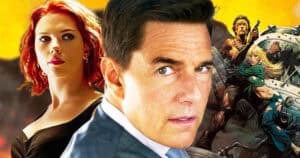
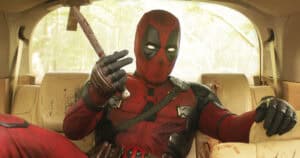
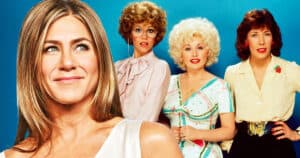
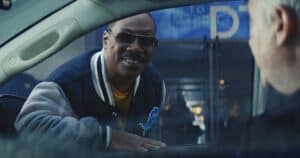


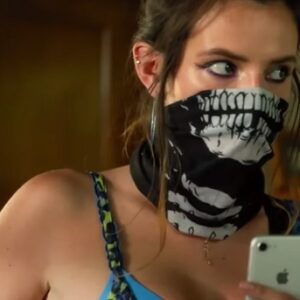

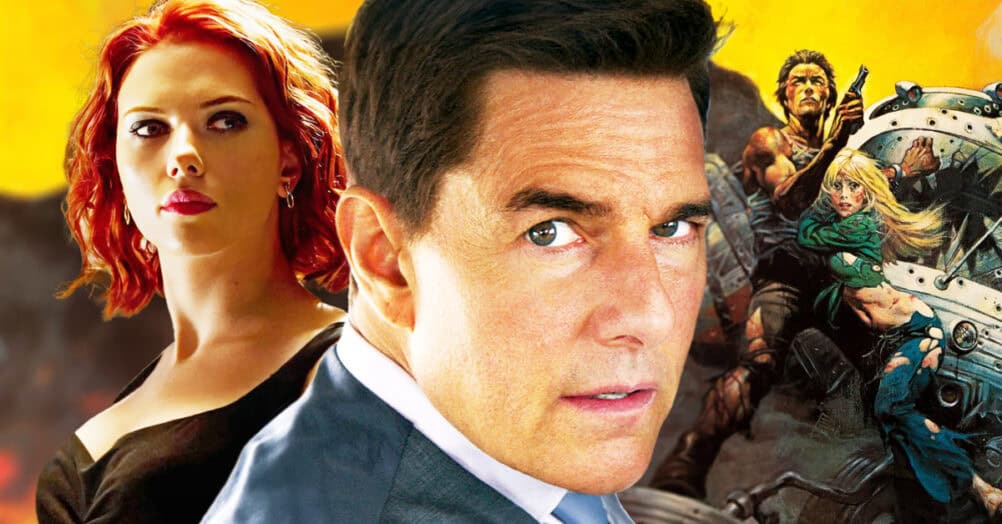
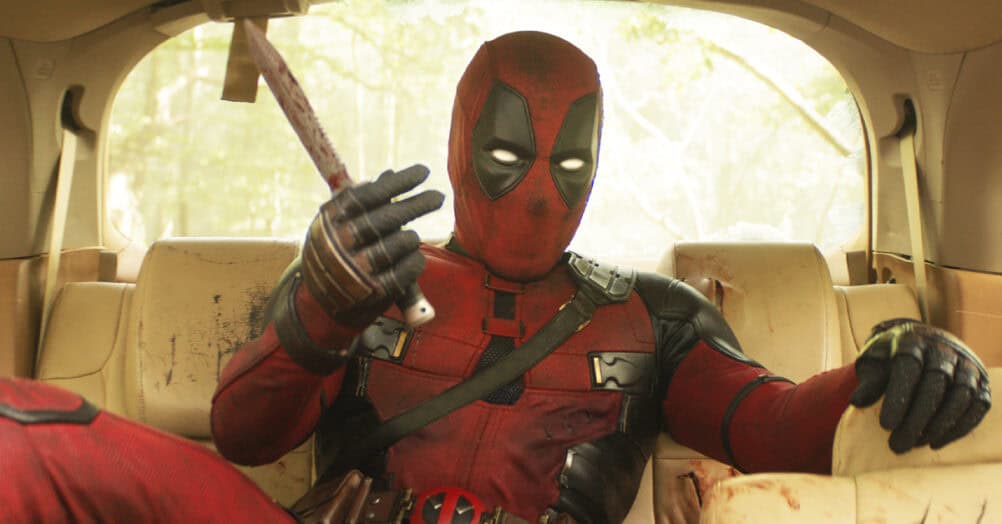

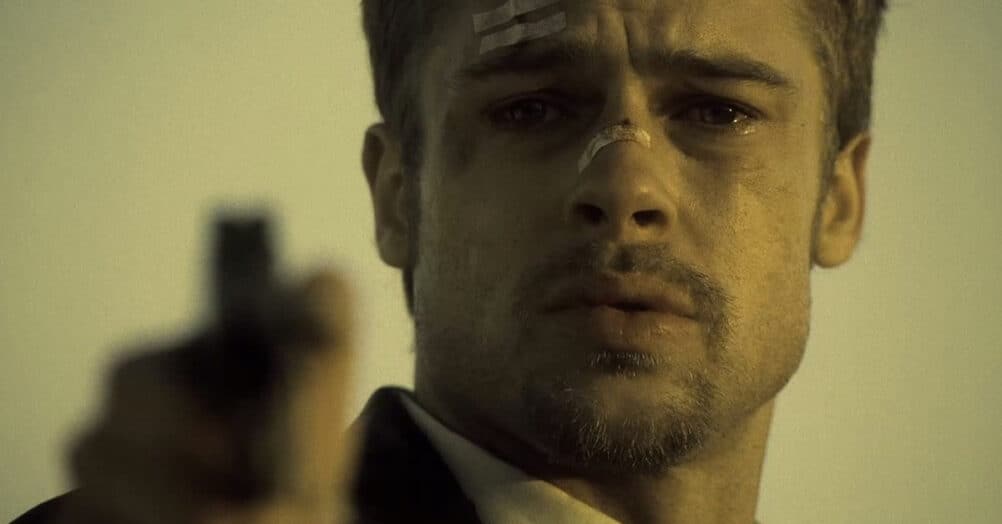
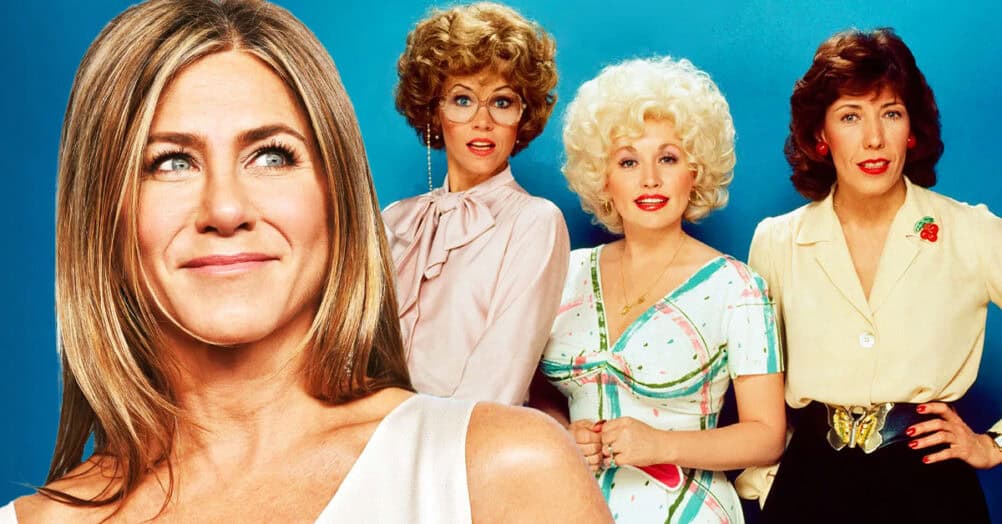
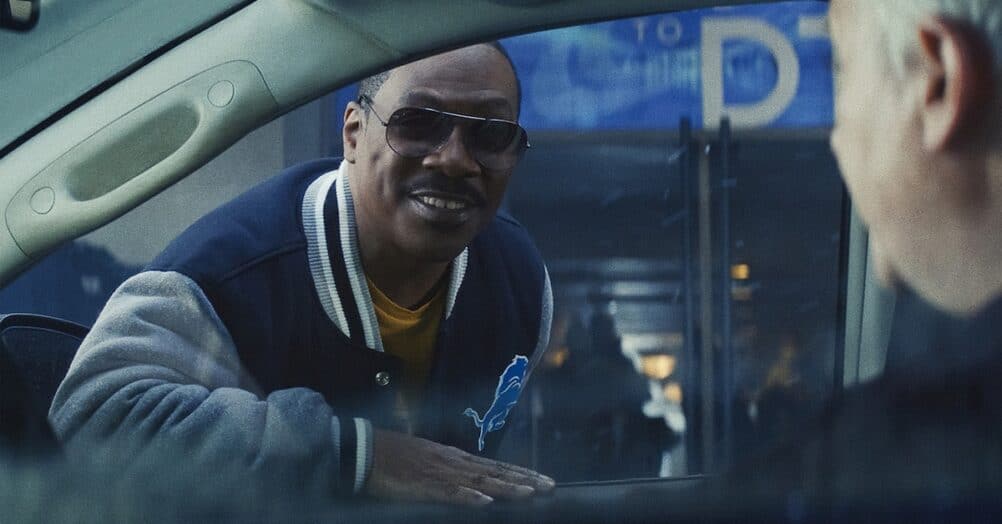
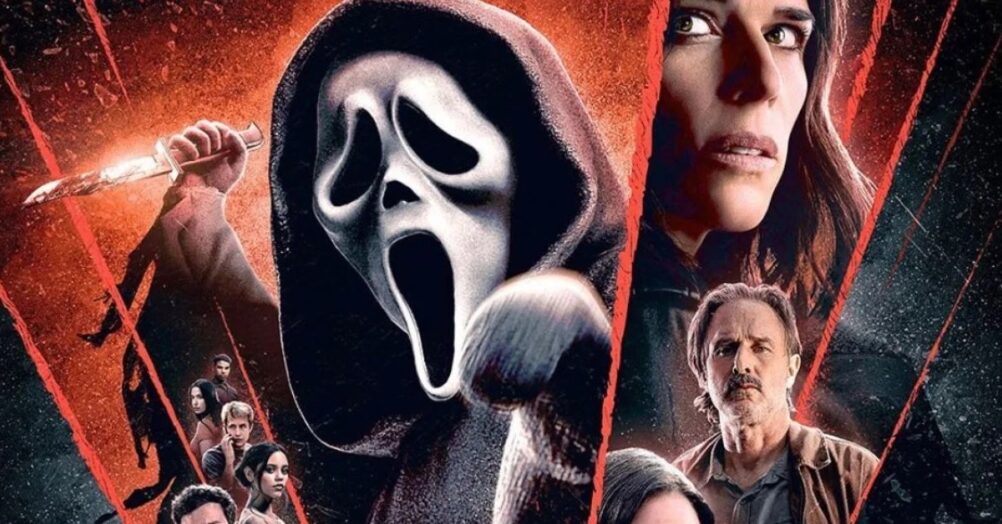
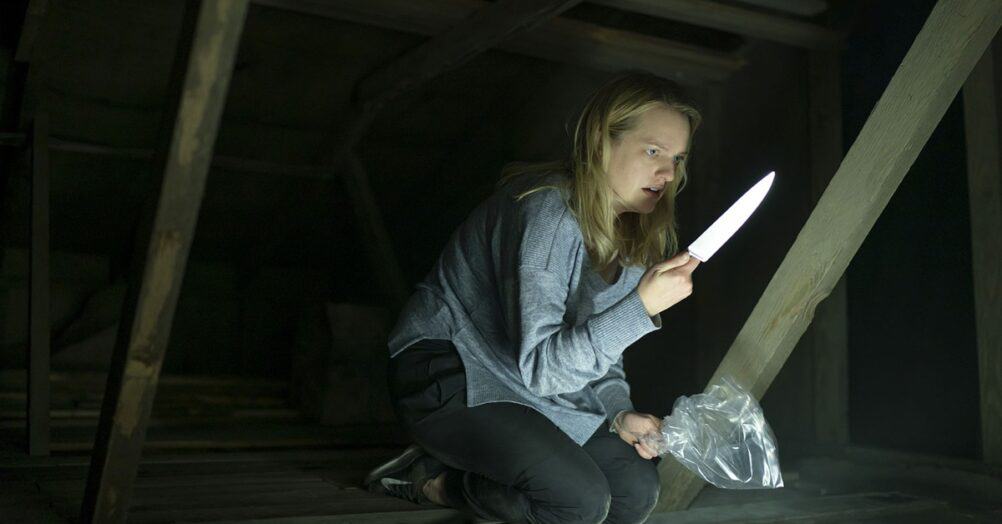
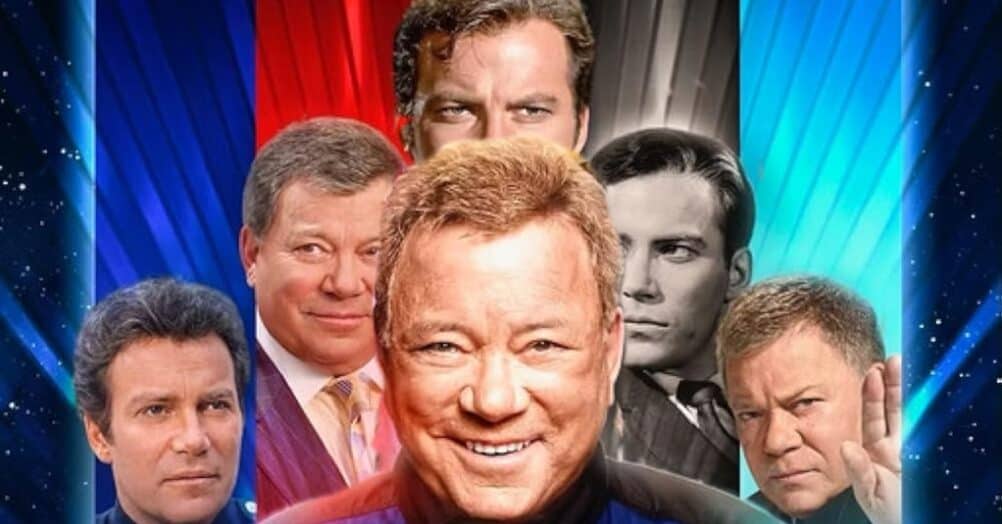

Follow the JOBLO MOVIE NETWORK
Follow us on YOUTUBE
Follow ARROW IN THE HEAD
Follow AITH on YOUTUBE